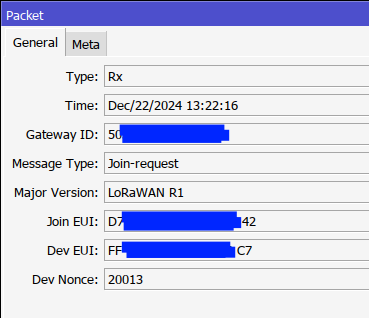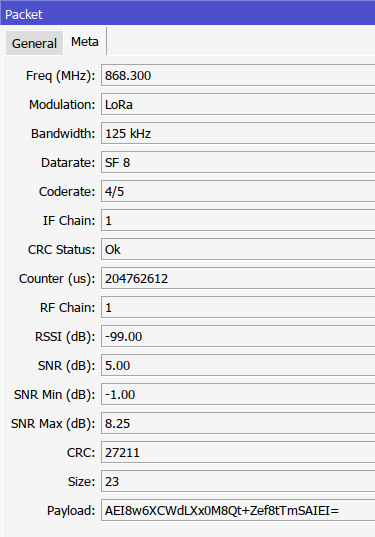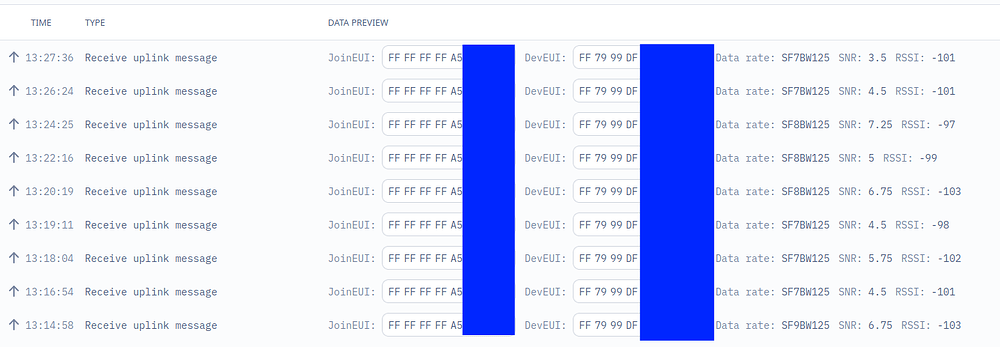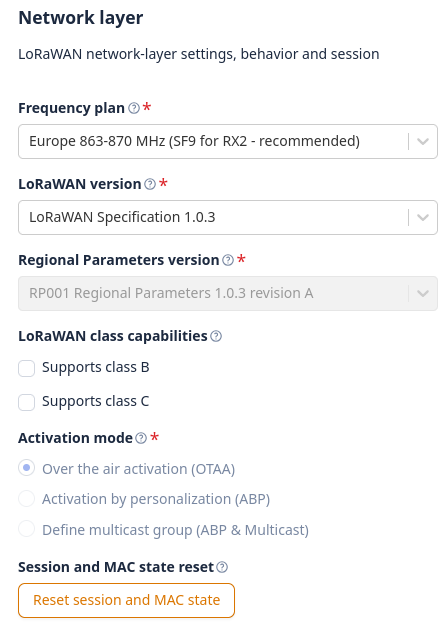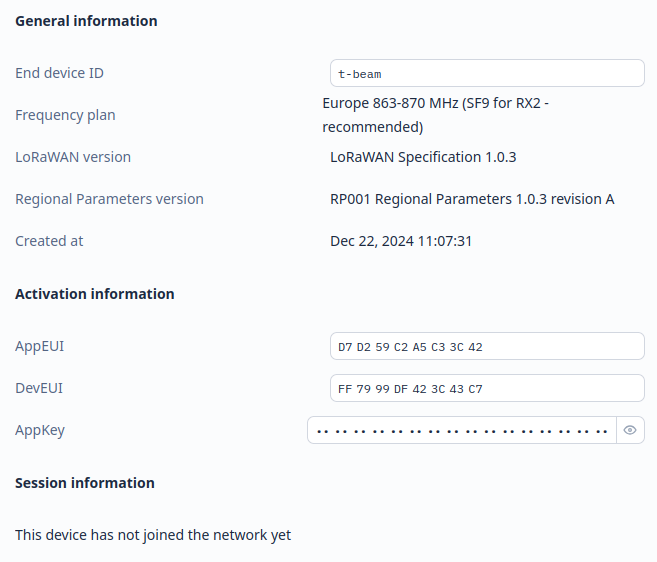TTN Mapper with T-Beam V1.2
Hello forum,
I have a T-Beam from Lilygo here in version 1.2.
I wanted to use it to fill TTN Mapper with some information.
I used this project here as a code base:
Part 1 - Part 2 - Part 3
(Attention, all in German!)
- The access data for OTAA has been entered correctly
- The frequency has been changed to 868MHz
- I have left CFG_sx1276_radio active
After uploading the code to the T-Beam, I only see the following two lines:
EV_TXSTART
EV_JOIN_TXCOMPLETE: no JoinAccept
On my MikroTik gateway, however, I can see that the join requests are arriving and the correct frequency is being used.
The EUIs look correct.
I have tried several settings, but nothing has worked.
Then I tried my hand at this project here:
https://github.com/kizniche/ttgo-tbeam-ttn-tracker
It is no longer up to date for V1.2, but at least the LoRa story works.
But even with “TTGO T-Beam Tracker for The Things Network” I can’t join the network.
The join requests there also always come to nothing.
What am I doing wrong?
Does V1.2 still work at all with the codes?
Finally, a question about the first project:
How can I integrate the display there so that it shows me current values?
This doesn’t seem to work with the available code.
